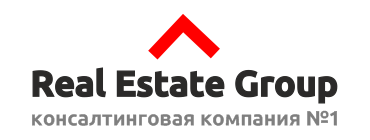Beginning of the article in part 1
Part 2: Modern Digital Strategies for the Ministry of Trade and Integration of the Republic of Kazakhstan.
Section 7: Digital Marketing and Promotion.
1. Digital Diplomacy: Promote Kazakhstan's trade and integration initiatives through digital diplomacy on social media and diplomatic channels.
2. Content Marketing: Develop a content marketing strategy to highlight Kazakhstan's economic potential.
3. Virtual Trade Missions: Organize virtual trade missions to connect Kazakhstani businesses with international partners.

4. Investment Promotion: Use digital channels to attract foreign direct investment (FDI) into Kazakhstan.
5. Online Investment Guides: Create user-friendly online guides for potential investors, showcasing the ease of doing business in Kazakhstan.
Section 8: Skill Development and Capacity Building.
1. Digital Training for Government Officials: Ensure that government officials have the necessary digital skills for effective policy implementation.
2. Public-Private Partnerships: Collaborate with private sector entities to establish digital training programs.
3. Data Analysts and Scientists: Recruit and train data analysts and data scientists to harness the power of data.
4. Certification Programs: Offer certification programs in digital trade and integration for professionals and businesses.
5. Continuous Learning: Encourage a culture of continuous learning and adaptation to stay at the forefront of digital trends.
Section 9: Monitoring and Evaluation.
1. Key Performance Indicators (KPIs): Establish KPIs to measure the effectiveness of digital strategies and integration efforts.
2. Real-time Data Analytics: Implement real-time data analytics to identify trends and adjust policies promptly.
3. Feedback Mechanisms: Create feedback channels for businesses and citizens to provide input on digital services.
4. Periodic Reviews: Conduct periodic reviews of digital initiatives to identify areas for improvement.
5. Benchmarking: Compare Kazakhstan's digital progress with global leaders to set ambitious goals.
Section 10: Cybersecurity and Data Privacy.
1. Cybersecurity Audits: Conduct regular cybersecurity audits to identify vulnerabilities.
2. Data Protection Laws: Strengthen data protection laws to safeguard citizens' data and business information.
3. Incident Response Plans: Develop comprehensive incident response plans to mitigate cybersecurity threats.
4. Awareness Campaigns: Educate citizens and businesses about cybersecurity best practices.
5. International Cybersecurity Collaboration: Collaborate with international organizations and neighboring countries to combat cyber threats.
Section 11: Sustainability and Green Trade.
1. Green Trade Promotion: Promote green and sustainable trade practices to align with global sustainability goals.
2. Eco-friendly Packaging: Encourage businesses to adopt eco-friendly packaging materials.
3. Carbon Trading: Explore carbon trading initiatives to offset emissions from trade activities.
4. Renewable Energy Integration: Integrate renewable energy sources into trade and integration processes.
5. Circular Economy: Advocate for a circular economy approach to reduce waste and promote resource efficiency.
Section 12: Cross-Border Digital Diplomacy.
1. Digital Bilateral Agreements: Collaborate with neighboring countries to establish digital bilateral agreements, facilitating cross-border data flows and e-commerce.
2. Digital Diplomacy Centers: Establish digital diplomacy centers to enhance diplomatic communication and cooperation with partner nations.
3. Digital Trade Negotiations: Utilize digital platforms for trade negotiations, reducing the need for physical meetings and paperwork.
4. Cross-Border Data Harmonization: Work with neighboring countries to harmonize data regulations, promoting smoother data exchange.
5. Digital Embassies: Consider the creation of digital embassies or virtual trade offices in key trading partner countries, enhancing diplomatic and trade relations.
Conclusion.
As Minister Shakkaliev takes the helm of the Ministry of Trade and Integration in September 2023, these 60 tips and recommendations provide a comprehensive blueprint for the modernization of trade and integration strategies in the Republic of Kazakhstan.
By embracing digital transformation, fostering innovation, and prioritizing collaboration, Kazakhstan can position itself as a dynamic player in the global economy.
The journey toward a digitally enabled trade and integration landscape will not only benefit businesses and citizens but also contribute to the nation's long-term prosperity and economic growth.
In this era of rapid technological advancement, the Republic of Kazakhstan has the opportunity to harness the power of digitalization to drive economic development and strengthen its position in the international arena.
The success of these strategies will depend on effective implementation, continuous monitoring, and adaptability in the face of evolving global dynamics.
Minister Shakkaliev and his team have a pivotal role to play in shaping the future of Kazakhstan's trade and integration efforts, and with these strategies, they can chart a path toward a prosperous and digitally connected future.
This concludes the two-part article on modern digital strategies for the Ministry of Trade and Integration of the Republic of Kazakhstan.
Appendix: Actionable Steps for Implementation.
To assist Minister Shakkaliev and his team in the practical implementation of the proposed modern digital strategies, Real Estate Group offers a number of practical steps and considerations:
1. Digital Transformation Office (DTO): Establish a dedicated DTO within the Ministry responsible for overseeing the digital transformation journey. Appoint a Chief Digital Officer (CDO) to lead this office.
2. Interagency Coordination: Collaborate closely with other government agencies, such as the Ministry of Digital Development, Innovation, and Aerospace Industry, to ensure alignment of digital initiatives.
3. Budget Allocation: Allocate sufficient budgetary resources for digital projects and initiatives, with a focus on long-term sustainability.
4. Public-Private Partnerships: Engage the private sector and technology firms in public-private partnerships to leverage their expertise, technologies, and investment.
5. Capacity Building: Invest in training and upskilling programs for government officials and the workforce to bridge the digital skills gap.
6. Data Governance: Establish clear data governance policies, including data ownership, privacy, and security protocols.
7. Regulatory Reforms: Review and amend outdated regulations to accommodate digital trade practices, e-signatures, and online dispute resolution mechanisms.
8. User-Centric Design: Develop digital services with a user-centric approach, focusing on ease of use and accessibility for businesses and citizens.
9. International Collaboration: Strengthen collaboration with international organizations like the World Trade Organization (WTO) and the United Nations Conference on Trade and Development (UNCTAD) to align digital trade policies with global standards.
10. Pilot Projects: Initiate pilot projects for key digital initiatives, allowing for testing and refinement before full-scale implementation.
11. Monitoring and Evaluation: Continuously monitor the progress of digital initiatives, using key performance indicators (KPIs) to measure success.
12. Agility and Adaptability: Foster an organizational culture that embraces change and adapts to evolving technologies and market dynamics.
13. Public Awareness Campaigns: Launch public awareness campaigns to inform businesses and citizens about the benefits of digital trade and integration.
14. Multilingual Support: Ensure that digital platforms and services support multiple languages to cater to Kazakhstan's diverse population and international partners.
15. Data Localization: Consider data localization requirements carefully, balancing security concerns with the need for cross-border data flows.
16. Technology Standards: Adopt international technology standards to promote interoperability and compatibility with global systems.
17. Risk Mitigation: Develop risk management strategies for cybersecurity threats and data breaches.
18. Intellectual Property Enforcement: Strengthen enforcement mechanisms for intellectual property protection, encouraging innovation and foreign investment.
19. Sustainability Metrics: Establish sustainability metrics to track the environmental impact of trade and integration activities.
20. Cross-Ministerial Collaboration: Foster collaboration with other ministries involved in sustainability efforts, such as the Ministry of Ecology, Geology, and Natural Resources.
By systematically addressing these actionable steps, the Ministry of Trade and Integration can ensure the successful implementation of the proposed digital strategies.
Minister Shakkaliev and his team must approach this digital transformation with a commitment to excellence, a willingness to adapt, and a deep understanding of the importance of embracing technology to secure Kazakhstan's future as a global trade and integration leader.
The Republic of Kazakhstan stands at a critical juncture in its economic evolution, and by embracing these modern digital strategies, it can forge a path to prosperity, innovation, and sustainable development on the global stage.
The success of this endeavor will not only benefit Kazakhstan's citizens and businesses but also contribute to the broader global community's shared goals of economic growth and cooperation.






